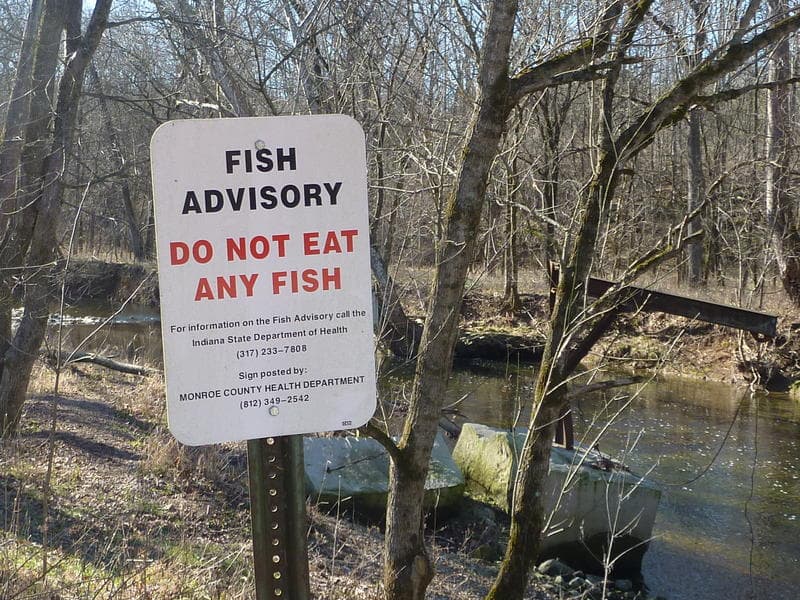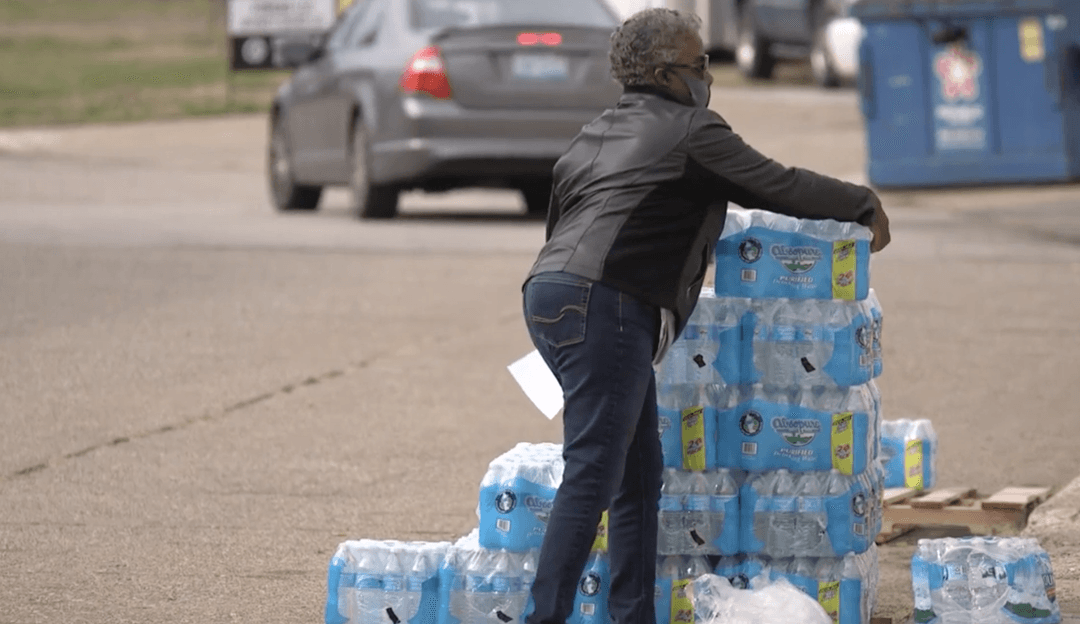
How would the candidates combat water contamination such as PFAS?
Aug 1, 2018
PFAS (per and polyfluoroalkyl substances) contamination has recently been making headlines as a threat to clean drinking water.
Last Sunday, the State of Michigan confirmed PFAS contamination in two townships in Kalamazoo County. According to Mary Ellen Geist’s article in GreatLakesNow.org:
“The state of emergency declaration in parts of Kalamazoo County came just a few days after new revelations of PFAS contamination from Michigan’s Selfridge air base into Lake St. Clair and the Clinton River were revealed, and other suspected sites from Otsego County to Saginaw to Western Michigan to the Upper Peninsula were being examined by State Inspectors.
The Michigan Department of Environmental Quality says there are now 35 confirmed sites in the state that are contaminated with PFAS. And more than 11,000 sites have the potential to be contaminated with PFAS-containing materials or waste.”
Protecting Michigan residents from contaminated drinking water would be one of the many responsibilities a new governor would take on. But what would their approach be? During the recent gubernatorial candidate interviews conducted by the Detroit Journalism Cooperative, Hassan Khalifeh of the Arab American News and New Michigan Media asked 6 of the gubernatorial candidates:
‘How do you intend to combat water contamination caused by industrial chemical spills like PFAS?’
Brian Calley (R):
Brian Calley: First of all, having standards in the first place is really important. We were surprised to learn that there really was not a federal standard on PFAS. There were suggestions. By rule, we established a standard so that we would have something to even enforce in the first place. PFAS is a good example of an issue where the main contaminants or problems are things that happened in the past. They are being recognized or realized now. We have to be very aggressive. We are developing the science. We are part of developing the science around this in the first place. Surprisingly little has been done around the country, even though this is a problem all over the country. It is everything from military bases to like Scotchgard operations that use that type of material. Setting up testing facilities and identifying what the extent of the problem is is the chief or the first step.
Then in terms of how to fix it going forward, really there are only three states that are actively engaged or working on this. This is including Michigan. I expect that this is going to be a big national issue. This is going to be something that other states wake up to. It is my hope that working together, we can find a better path forward.
Patrick Colbeck (R):
Patrick Colbeck: Well, first of all, you monitor it and you understand where you’re actually getting contamination, making sure that people are held responsible and they actually do that. I’ve got an issue with vinyl chloride spill here in my district right now at a plant in Livonia. What I’ve been working with DEQ and also DHHS on is how do you determine what a clean bill of health is for the people that are in that community because there’s a health issue associated with it. There’s also a property value issue because they’re going to try to sell their home, and they’ve got the issue of a vinyl chloride spill in their neighborhood.
So what I’ve done is come up with an approach to DHHS and DEQ, and I said I want to come up with a “Good Housekeeping Seal of Approval” that says that I know that these homes right here are safe because they meet some minimum essential threshold or whatever of safety on particular vinyl chloride levels. And also the same thing in regard to property values, I want to be able to say that these are well within acceptable levels for any sort of transaction or sale of that home. So I try to work with it to get back to the homeowners and get them some peace of mind, first and foremost. And if that involves remediation on the part of the offending party, then we’ll make sure that there is remediation steps taken and hold them accountable.
JIm Hines (R):
Jim Hines: Absolutely. There are over 7,000 toxic sites across the state. 3,000 of those are orphan sites where we don’t know those responsible for the leakage or are no longer there. Those sites, many of them, are potentially leaking contaminates into our groundwater system, which then leads to our rivers and lakes. This has to be dealt with and not just ignored. It has to be at the top of the list. We have to deal with it. The question always is well, what about funding?
And I think two parts on that. One is we have tried in the last ten years, and longer, to clean up those sites, but it’s interesting if you look at the accountability part of that. A lot of that money was used for parks and walkways and tennis courts and swimming pools, so it wasn’t all used for toxic clean-up. I’m talking about using the money for what it’s designated for. I would look at tipping fees. This is the cost that we charge for people to dump trash in Michigan.
We’re an international dumping site, international. When we look at the trash that’s dumped in Michigan, there are states that are trucking it in 100 miles because we’re only $0.36 a ton. Wisconsin’s $13 a ton. We’re not in sync with the states around us, and so we’re like a magnet attracting trash to the state of Michigan. We really don’t need other people’s dirty diapers and banana peels and coffee grounds and things like that. We just don’t need them.
I believe that we should increase our tipping fee so that it matches, or is similar to, the states that are around us so that we’re not that magnet. The funds that we get from the trash that’s dumped here, I believe, could be used for these toxic sites. It’s been shown, easily, 79, $80 million could be garnished that we could use to clean up the sites.
Abdul El-Sayed (D):
Abdul El Sayed: The only way that we get this right really over the long term is to prevent it from happening in the future, right? That is the most important thing. Cleaning up is very, very hard to do. And yes, we need to make those investments. But unless we get serious about standing up to these big corporate polluters who have had their way with our air and water. We are going to keep watching these things happen. My mom, my step-mom grew up in Kershaw County Michigan. And her brother was affected by the PBBs poisoning in that part of the state because of Dow Chemical. And every year he has to go to the doctor and he has to get screened for the many different kinds of cancers that come because of that. Why did that happen? Because the State didn’t take its responsibility to a regulation seriously.
We are watching as Republicans are trying to strip away everything that the DEQ can do to even regulate in the first place. I mean they are trying to replace the DEQ’s regulatory capacity with a commission of CEOs of industry, right? We know what decisions they are going to make. I mean right now the DEQ is headed by a former oil executive of BP. And we watch as the decisions continue to get made. When I was at the Health Department one of the most important things that we did was stood up to the DEQ and Marathon Petroleum when they wanted to raise their emissions of sulfur dioxide. And I couldn’t believe that I was a health director was standing up and facing down a group of bureaucrats at the Department of Environmental Quality having to explain to them why raising the amount of sulfur dioxide in the air wasn’t a good thing in a city with three fold probability of asthma hospitalizations in the state.
We have got to stand up our DEQ again. And that is why I believe these robust investments in a DEQ that has the capacity to regulate, has the capacity to promulgate rules, has the capacity to actually regulate on big corporate polluters is critical. From there one of the parts that we are going to have to get right is clean up. Clean up is really hard. Once you put those kind of organic compounds into the world they are really, really hard to put back in, put back into the bottle again. And so those investments are going to be things that we have to keep fighting for. But until we get it right not just on the clean up but on the prevention we are going to keep watching these things happen.
It’s sad to me that as a state that is defined by its fresh water we are the epicenter of water related disasters whether it’s the Flint water crisis, whether it’s the water shut offs in Detroit or whether it’s PFOS in the water in communities across the state. I mean we’ve got to get this right.
Hassan Khalifeh: How exactly would you give the MDQ — DEQ the authority to do the things it should be doing?
Abdul El Sayed: So part of it is to build its budget out. Right now at $27 million it is one of the most poorly funded agencies in this state. And one of the most poorly funded departments of its kind nationwide. We’ve got to invest in it again the people doing the work. A part of it right now is that we are going to have to fight for legislation that allows it to promulgate rules. That allows it to actually say look, the intent of the law is this, which means that the application of the law ought to look in these following ways. Because now, it is kind of hamstrung. They are fighting the fight with one arm behind their back. This is not to call out the civil servants who work at the DEQ aside from the director of the DEQ, those folks are there because they believe in the work. But they just haven’t had the means to do the work either because of the legislation on the ground or because they haven’t had the funding that they needed. So we got to fight on both fights.
Shri Thanedar (D):
Hassan Khalifeh: So, you had talked about contamination by industrial corporations and Enbridge 5, which isn’t the only threat to the Great Lakes. Can you talk specifically how you would combat contamination by industrial sources?
Shri Thanedar: Yes.
Hassan Khalifeh: Like including chemicals like PFAS?
Shri Thanedar: Yes. So, you know, we do have a fund for cleanup but that fund has run out of money. And what I would do is I would require industries to have a cleanup fund. So, there should be a bank – a cleanup bank – where we ensure that funds are in the bank so that when there is a contamination or when there is a spill, we have money available to clean up.
We have about 700 sites that need cleanup. We have dangerous cancer-causing chemicals in our grounds and in our soil. And that poses a danger to the lives of Michiganders. And I’m going to hold the corporations accountable. I believe – and I’ve run small businesses, I’ve run chemical/ pharmaceutical testing businesses, and I’ve dealt with toxic chemicals. But I’ve always followed all of the regulations and I’m able to make a profit and pay my employees well despite that.
So, the Republican myth that you can’t have regulations or you can’t hold corporations accountable because that will affect the jobs is not true. You know, following the regulations and not polluting our environment is just a good business and that’s the practices that they must follow. And I would hold corporations accountable.
Gretchen Whitmer (D):
Gretchen Whitmer: Well I think first and foremost we get experts leading our departments in Michigan. No cronies, no buddies and certainly lobbies of BP heading up our environmental quality and DNR departments. Second, it’s a complicated issue. There is no easy, quick fix. That’s what’s so scary about it because it’s devastating. The potential problems that people are going to face because of PFAS but we’ve got to serious about this. These bases where a lot of this has happened, it’s on the feds to pay to fix it, to remedy this. In some cases, we might not be able to fix it and that’s what’s so scary. They’ve got to provide clean drinking water for people who own property that is now less valuable and that can’t produce water coming out of their taps that they can consume. I don’t know that there’s an easy fix but we’ve got to get to work doing it. We can’t pretend it’s not happening. We can’t pretend that this isn’t a real threat to individuals in our state but to our state as a whole as well.
More on the Detroit Journalism Cooperative Gubernatorial Candidate Interviews:
This year, Michigan voters will be selecting a new governor, who will be facing important issues that will determine the health and vitality of the state for years to come.
The first step in the electoral process is the state primary on August 7, when the standard bearer for both the Democratic and Republican parties will be determined.
The Detroit Journalism Cooperative invited all major party candidates to the Detroit Public Television studio for individual, hour-long interviews with a panel of its reporters. The candidates received virtually the same questions and were able to respond at length, providing voters with a much more in-depth and contextual understanding of where each stood on the issues of importance to the state than they can glean from conventional coverage.
So please consider their opinions carefully and, most of all, vote!
Every candidate accepted the invitation to be interviewed except for Attorney General Bill Schuette.
Stay Connected
Subscribe to One Detroit’s YouTube Channel and don’t miss One Detroit on Thursdays at 7:30 p.m. and Sundays at 9 a.m. on Detroit PBS, WTVS-Channel 56.
Catch the daily conversations on our website, Facebook, Twitter @OneDetroit_PBS, and Instagram @One.Detroit
Related Posts
Leave a Reply
Your email address will not be published. Required fields are marked*





























